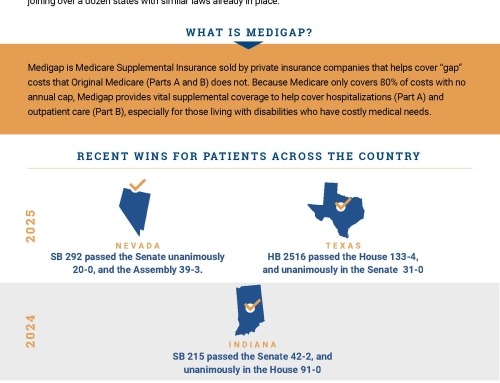Chronic kidney disease (CKD), also called chronic kidney failure, describes the gradual loss of kidney function. Your kidneys filter wastes and excess fluids from your blood, which are then removed from your body in your urine. When CKD reaches an advanced stage, dangerous levels of fluid, electrolytes and waste products can build up in your body and cause you harm.
In the early stages of CKD, you may have few signs or symptoms, and may only be diagnosed with a blood and/or urine test. In fact, you may not feel sick from CKD up until most of your kidney function is lost.
Treatment for CKD focuses on preventing more kidney damage and slowing the loss of kidney function by controlling the underlying cause and treatment of high blood pressure. CKD can progress to end-stage renal disease (ESRD), or total kidney failure. ESRD is eventually fatal without replacing the kidney function with treatments such as artificial filtering (dialysis) or a kidney transplant.
Signs and symptoms of kidney disease may include:
- Nausea
- Vomiting
- Loss of appetite
- Fatigue and weakness
- Sleep problems
- Changes in urine
- Decreased mental sharpness or confusion
- Muscle twitches and cramps
- Hiccups
- Swelling of feet, ankles, hands or face
- Persistent itching
- High blood pressure (hypertension) that’s difficult to control
- Chest pain, due to fluid building up around the lining of the heart
- Shortness of breath, because of fluid building up in the lungs
Signs and symptoms of kidney disease are often nonspecific and may be caused by other illnesses. Also, because your kidneys are highly adaptable and able to compensate for lost function, signs and symptoms may not appear until irreversible kidney damage has occurred. Make an appointment with your doctor if you have any signs or symptoms of kidney disease or are told that your blood or urine tests raise concern for CKD.
Diseases and conditions that commonly cause CKD include:
- Type 1 or Type 2 diabetes
- High blood pressure (hypertension)
- Glomerulonephritis (gloe-mer-u-lo-nuh-FRY-tis), damage of the kidney’s glomeruli, or filtering units), including from conditions such as lupus
- Interstitial nephritis, damage of the kidney’s tubules, or pipes, and surrounding structures
- Polycystic kidney disease
- Obstruction, or blockage of the urinary tract, from conditions such as enlarged prostate, kidney stones and some cancers
- Vesicoureteral (ves-ih-koe-yoo-REE-ter-ul) reflux, a condition that causes urine to back up into your kidneys
- Recurrent kidney infectioninfection, also called pyelonephritis (pie-uh-lo-ne-fry-tis).
Factors that may increase your risk of CKD include: - Heart disease
- Smoking
- Obesity
- High cholesterol
- Being African American, Native American or Asian American
- Family history of kidney disease
- Being age 65 or older
If you have a medical condition that increases your risk of CKD, your doctor may check your blood pressure and kidney function with urine and blood tests during regular office visits. Ask your doctor if these tests are recommended for you.
CKD can affect almost every part of your body. Potential complications include:
- Fluid retention, which could lead to swelling in your arms, legs, or face, high blood pressure or fluid in your lungs (pulmonary edema)
- A sudden rise in potassium levels in your blood (hyperkalemia), which could impair your heart’s ability to function and may be life threatening
- Heart and blood vessel disease (cardiovascular disease)
- Weak bones and an increased risk of bone fractures
- Anemia
- Decreased sex drive or impotence
- Damage to your central nervous system, which can cause difficulty concentrating, personality changes or seizures
- Decreased immune system, which may increase your risk of infection
- Pericarditis, an inflammation of the lining (pericardium) that surround your heart
- Pregnancy complications for the mother and the developing fetus
- Irreversible damage to your kidneys (end-stage kidney disease), eventually requiring either dialysis or a kidney transplant for survival.
Depending on the underlying cause, some types of kidney disease can be treated to avoid developing total kidney failure. This may include controlling other chronic conditions such as diabetes or high blood pressure. However, chronic kidney disease often has no cure. In general, treatment goals are to control signs and symptoms, reduce complications, and slow the loss of kidney function.
Treating Complications
Kidney disease complications can be treated to make you more comfortable. Treatments may include:
- Medications to control blood pressure. People with kidney disease may experience high blood pressure. Your doctor may recommend medications to lower your blood pressure. A common type of medication recommended is angiotensin-converting enzyme (ACE) inhibitors or angiotensin II receptor blockers. Research studies have shown that these medications prevent the loss of kidney function. High blood pressure medications can decrease kidney function and change electrolyte levels in your blood, so you may need frequent blood tests to check on how your body responds to these medications. Your doctor may also recommend a water pill (diuretic) to remove extra fluid and a low-salt diet.
- Medications to lower cholesterol levels. Your doctor may recommend medications called statins to lower your cholesterol. People with CKD often experience high levels of bad cholesterol, which can increase the risk of heart disease.
- Medications to treat anemia. In certain situations, your doctor may recommend supplements of the hormone erythropoietin (uh-rith-roe-POI-uh-tin). Your doctor may also recommend iron. Erythropoietin helps the body to make more red blood cells, which may improve anemia and relieve fatigue and weakness associated with anemia.
- Medications to treat swelling. People with CKD may retain fluid. This can lead to swelling in the legs, and worsen high blood pressure. Medications called diuretics can help remove fluids from your body.
- Medications to protect your bones. Your doctor may recommend calcium and vitamin D supplements to prevent weak bones and lower your risk of fracture. You may also take medication to lower the amount of phosphate in your blood, to protect your blood vessels from damage by calcium deposits (calcification).
- A lower protein diet. Your doctor or dietitian may recommend a lower protein diet to minimize waste products in your blood. As your body digests protein from foods, it creates waste products that your kidneys must filter from your blood. A lower protein diet reduces the amount of work your kidneys must do.
Treatment for ESRD
If your kidney function continues to be lost despite treatment, and you develop complete or near-complete kidney failure, you have End Stage Renal Disease (ESRD). At that point treatment to replace the function of the kidney is needed. Two options are available: dialysis or a kidney transplant.
- Dialysis. Dialysis waste products and extra fluid from your blood when your kidneys can no longer do this. There are two main types of dialysis. In the first, hemodialysis, which can be done in dialysis center or at home, a machine filters waste and excess fluids from your blood. In the second, peritoneal dialysis, which is done at home, a thin tube (catheter) inserted into your abdomen fills your abdominal cavity with a dialysis solution that absorbs waste and excess fluids. After a period of time, the dialysis solution drains from your body, removing the waste with it.
- Kidney transplant. A kidney transplant involves surgically placing a healthy kidney from a donor into your body. Transplanted kidneys can come from deceased or living donors. You’ll need to take medications for the rest of your life to keep your body from rejecting the new kidney.
For some who choose not to have dialysis or a kidney transplant, a third option is to treat your kidney failure with conservative measures. This includes working closely with your doctor and maybe palliative care specialists to ease your symptoms and any complications. However, once you have complete kidney failure and you make little or no urine, most people cannot survive more than a few weeks.




